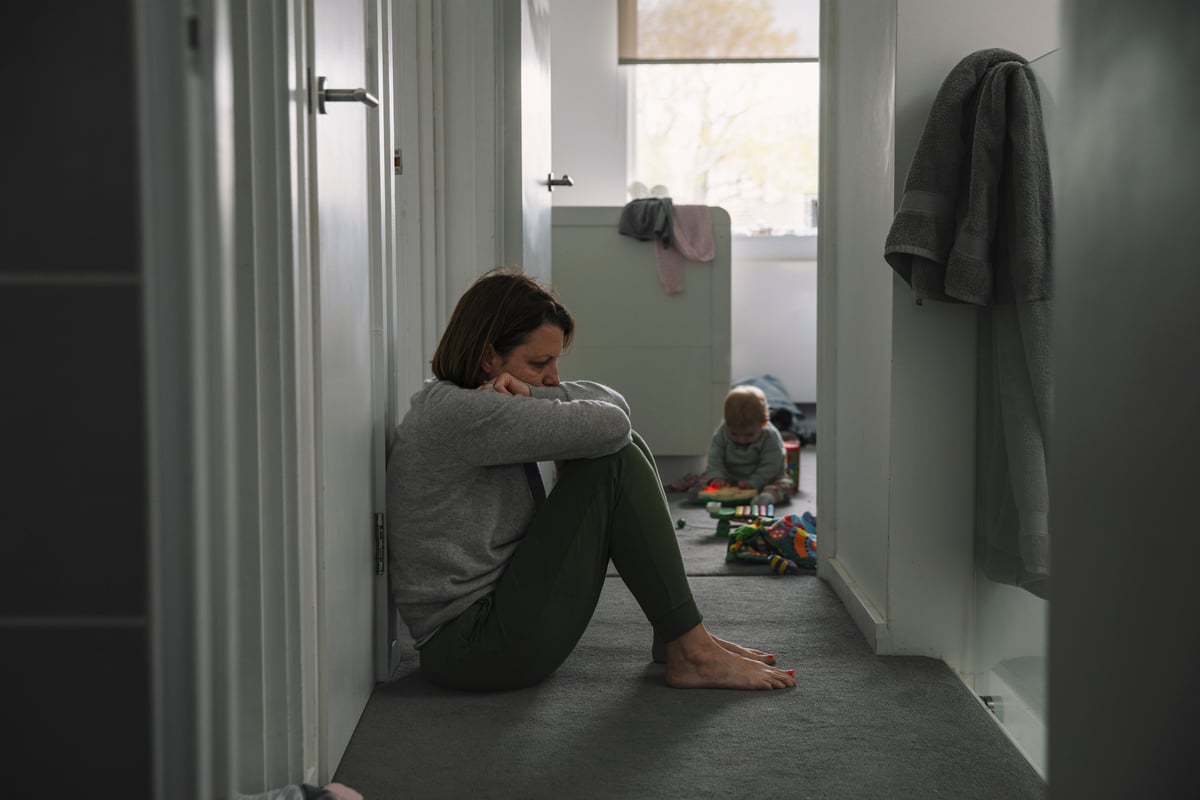
Torturing new mothers? Who does that? Well, as a society, we all do. I’m not kidding, I’m perfectly serious, and I’m going to stop mincing my words and say it how it is. We torture mothers.
Sleep deprivation is a method of torture that has been used for at least 500 years, and is still used today. It was used extensively in Guantanamo Bay. The difference between sleep deprivation in Guantanamo Bay and in new mothers is that no-one is systematically and intentionally hurting new mothers. But the effect is the same. Sleep torture is designed to create psychological changes, which are supposed to encourage the victim to submit, to lose their sense of reality, and to talk.
Watch: Laura Byrne explains how to 'Be a good mum'. Post continues below.
Chronic sleep deprivation is not good for you. It leads to cognitive impairment, anger and irritability, anxiety, and even psychosis. Yes, you read that right. Chronic sleep deprivation is known to cause psychosis. Puerperal psychosis in new mothers is not common thankfully, but it is dangerous. I’ve been lucky enough to attend a few study days on perinatal mental health recently, and they have all included really valuable talks by people who have recovered from severe postnatal depression, posttraumatic stress disorder and psychosis. What I noticed was that they all had one thing in common. They all mentioned lack of sleep as a factor in their illness.


Top Comments
I changed my life two years ago after a period of depression and requalified as a maternity nurse/mental health practitioner. I volunteer for MIND once a week and facilitate the Mindful Mums group, supporting mums with perinatal mental health issues. One of my key (paid) roles as a maternity nurse is to do exactly what your article says; allow mum time to rest and recover, cook healthy, wholesome meals and do everything I can to help to support the bonding between mum and baby and to ensure feeding is established, whether breast, bottle or both. I’m not there every day (I have three children of my own) but tend to do 3 nights and 2 days per week, which also enables the family to have time together and to support one another as they will need to do going forwards. It’s the best job in the world but crucially it also means that I’m able to pick up on early perinatal mental health issues and support, if needed, and most importantly signpost to ensure that the right help is found. My dream is to set up a charity to do exactly what I do every day across every socio-economic strata, not just for those who can afford to pay. Thank you for this article; I could have written it word for word myself (but likely far less eloquently!)
Thank you for saying it like it really is!
“It is no measure of health to be well adjusted to a profoundly sick society.”
~ J. Krishnamurti